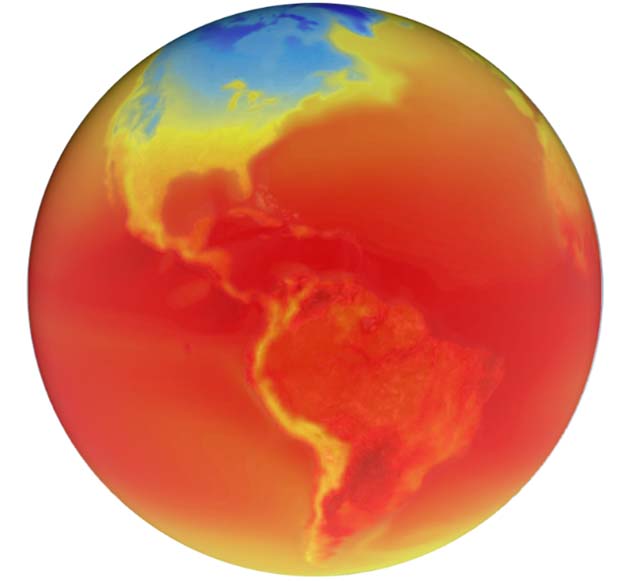Satellite observations with global or near-global coverage of the earth can support planning, siting, and operation of renewable energy systems. Over the past year, our team has come together through the Energy Analysis and Policy (EAP) program to understand the successes, opportunities, and information needs to make satellite data more useful to energy applications.
Our work brings together a community of experts linking satellite technology with real-world energy decisions. Satellite data are already being applied to a wide range of energy issues, from planning and operation of renewable energy projects, tracking electricity access around the world, and even screening sites to meet future energy demand at the University of Wisconsin–Madison. However, technical, social, and structural barriers have limited some potential applications of space-based data to on-the-ground information needs.
To help identify barriers and opportunities around satellite data for energy applications, the EAP program hosted a series of meetings, each structured to maximize engagement between research perspectives and energy professionals including policymakers, electric utilities, private companies, and community groups. Supported by conference sponsors, donors to the EAP program, and a grant from NASA, the workshops are defining research needs and emerging issues in the energy applications of satellite data.

In October 2022, our first conference addressed the potential for satellite data to support energy decision-making around supply, demand, and environmental impacts. This first-of-its-kind conference brought together academic, industry, government, and nonprofit leaders to link space-based data with practical energy issues. Panels hosted a mix of perspectives and organizations to promote the lively exchange of ideas. View the EAP 2022 conference sessions
In 2023, EAP hosted two follow-up workshops off-campus with the goal of connecting with other leading institutions working in the energy and satellite space. In September 2023, we worked with the National Center for Atmospheric Research (NCAR) in Boulder, Colorado, to discuss how satellite data can be used to improve wildfire risk mitigation, support decision-making for power systems, and minimize impacts on vulnerable communities. Discussions ranged from energy demand to grid operations under wildfire risk. View the EAP 2023 NCAR workshop sessions
In October 2023, EAP worked with Duke University in Durham, North Carolina, to link satellite data with the broader topic of energy data analytics. The workshop covered how data science and machine learning can improve remote sensing for energy and climate data, energy systems modeling, and energy access. View the 2023 EAP/Duke conference information
To conclude this series of workshops, we will focus on satellite data for solar energy planning and management, hosted jointly by EAP and the University of Iowa. The workshop will focus on solar forecasting, solar siting, and policy implications, including use of the NASA POWER data portals.
Author Affiliations
- Tracey Holloway, University of Wisconsin–Madison Nelson Institute for Environmental Studies energy analysis and policy (EAP) program, Jeff Rudd and Jeanne Bissell Professor of Energy Analysis and Policy, taholloway@wisc.edu
- Michael Kamp, UW–Madison EAP outreach and development specialist, Nelson Institute Center for Sustainability and the Global Environment (SAGE), mkamp@wisc.edu
- Brad Pierce, UW–Madison Department of Atmospheric and Oceanic Sciences professor and Space Science and Engineering Center director, rbpierce@wisc.edu
- Morgan Edwards, UW–Madison La Follette School of Public Affairs assistant professor of public affairs, morgan.edwards@wisc.edu
- Paul Stackhouse, NASA Langley Research Center senior researcher, Hampton, VA, paul.w.stackhouse@nasa.gov